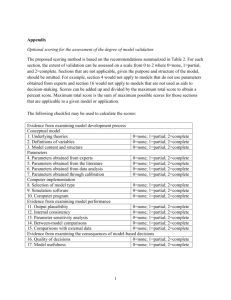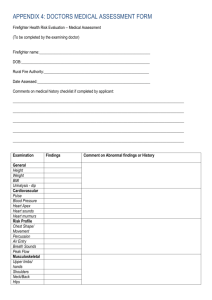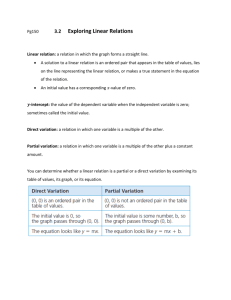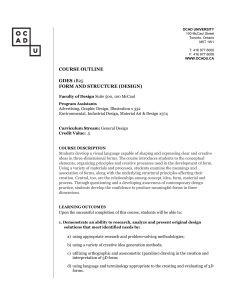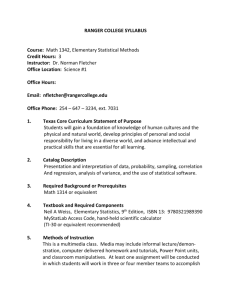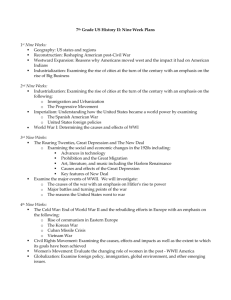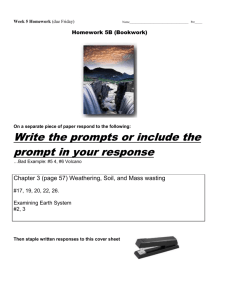SPRING SYLLABUS: HISTORY 1302
advertisement
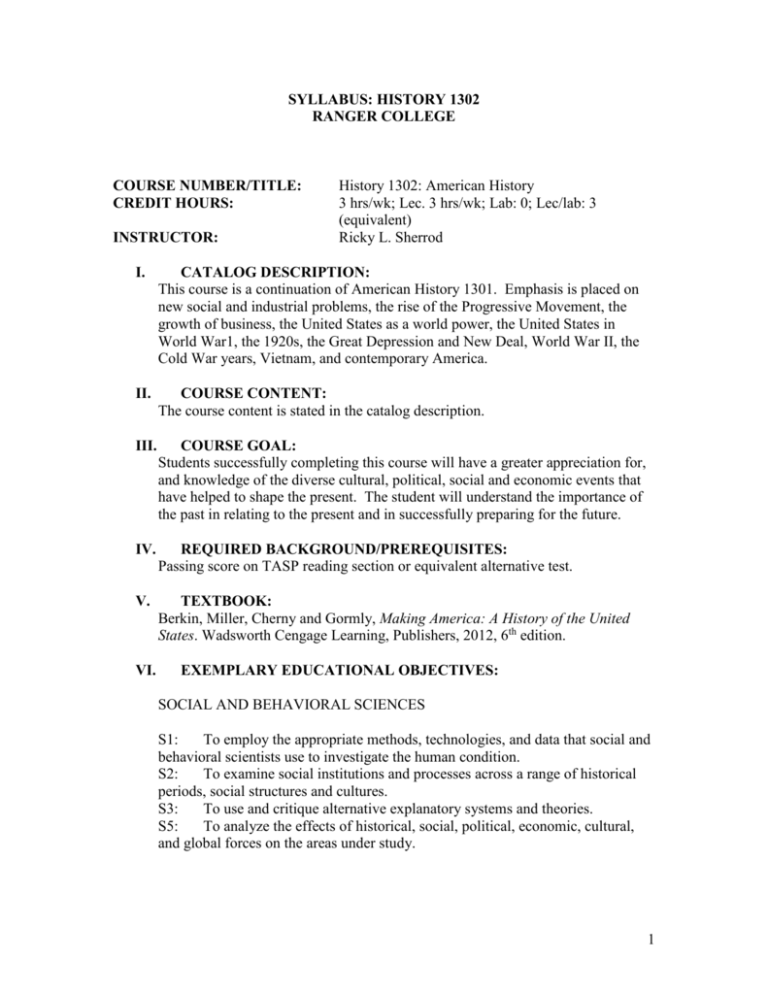
SYLLABUS: HISTORY 1302 RANGER COLLEGE COURSE NUMBER/TITLE: CREDIT HOURS: INSTRUCTOR: History 1302: American History 3 hrs/wk; Lec. 3 hrs/wk; Lab: 0; Lec/lab: 3 (equivalent) Ricky L. Sherrod I. CATALOG DESCRIPTION: This course is a continuation of American History 1301. Emphasis is placed on new social and industrial problems, the rise of the Progressive Movement, the growth of business, the United States as a world power, the United States in World War1, the 1920s, the Great Depression and New Deal, World War II, the Cold War years, Vietnam, and contemporary America. II. COURSE CONTENT: The course content is stated in the catalog description. III. COURSE GOAL: Students successfully completing this course will have a greater appreciation for, and knowledge of the diverse cultural, political, social and economic events that have helped to shape the present. The student will understand the importance of the past in relating to the present and in successfully preparing for the future. IV. REQUIRED BACKGROUND/PREREQUISITES: Passing score on TASP reading section or equivalent alternative test. V. TEXTBOOK: Berkin, Miller, Cherny and Gormly, Making America: A History of the United States. Wadsworth Cengage Learning, Publishers, 2012, 6th edition. VI. EXEMPLARY EDUCATIONAL OBJECTIVES: SOCIAL AND BEHAVIORAL SCIENCES S1: To employ the appropriate methods, technologies, and data that social and behavioral scientists use to investigate the human condition. S2: To examine social institutions and processes across a range of historical periods, social structures and cultures. S3: To use and critique alternative explanatory systems and theories. S5: To analyze the effects of historical, social, political, economic, cultural, and global forces on the areas under study. 1 S6: To comprehend the origins and evolution of U.S. and Texas political systems, with a focus on the growth of political institutions, the constitutions of the U.S. and Texas, federalism, civil liberties, and civil and human rights. S7: To understand the evolution and current role of the U.S. in the world. S8: To differentiate and analyze historical evidence (documentary and statistical) and differing points of view. S9: To recognize and apply reasonable criteria for the acceptability of historical evidence and social research. S10: To analyze, critically assess and develop creative solutions to public policy problems. S11: To recognize and assume one’s responsibility as a citizen in a democratic society by learning to think for oneself, by engaging in public discourse, and by obtaining information through the news media and other appropriate information sources about politics and public policy. S12: To identify and understand differences and commonalities within diverse cultures. VII. BASIC INTELLECTUAL COMPETENCIES: B1: To analyze and interpret a variety of printed materials at college level. B2: To produce clear, correct and coherent prose adapted to the purpose of the class including correct spelling, grammar and punctuation; and, developing and organizing topics. B3: To communicate orally in clear, coherent, and persuasive language appropriate to the purpose, occasion and audience. B4: To analyze and interpret various forms of spoken communication. B5: To apply both qualitative and quantitative skills analytically and creatively to subject matter in order to evaluate arguments and construct alternative strategies. VIII. COURSE OBJECTIVES: A. B. C. D. E. To describe, compare, and contrast the development of English colonies in America with each other and with American colonies of other Western powers and to compare/contrast these with Native American cultures. (S1, S5, S9, B1, B2, B5) To analyze factors leading to the struggle for independence. (S5, S8, S9, B5) To describe and analyze the major problems that confronted the country during the Confederation period and the establishment of the Constitution. (S2, S5, S6, S9, S10, S11, B1, B2, B3, B4, B5) To describe and analyze the constraints, choices, expectations and outcomes concerning territorial expansion and slavery. (S2, S5, S6, B1, B2, B3, B5) To analyze and contrast the choices, expectations, constraints and outcomes during the colonial, Federalist, and pre-Civil War periods of 2 F. G. IX. the country relating to women, Native Americans and African Americans. (S1, S5, S8, S9, S12, B1, B2, B3, B4, B5) To compare and contrast the effects of the Jacksonian Era on the country. (S2, S5, B1, B2, B5) To analyze the choices, constraints, expectations and outcomes of the Civil War and Reconstruction on the country. ( S1, S2, S3, S5, S6, S8, S10, S11, S12, B1, B2, B3, B5) TOPICAL COURSE CALENDAR: Syllabus and Expectations Pretest, Industrialization: examining the factors and processes leading to the massive industrialization of the United States and western settlement. Chapter 16 Urbanization: examining the factors leading to the growth and development of cities, the resulting problems and the attempts to address those problems. Chapter 17 Political Upheaval: Examining the changes to political parties and reform efforts; examining the foreign policies leading up to and through the Spanish American War. Chapter 18 Progressivism and Foreign Policies: Exploring the characteristics of Progressivism and the differences and similarities of the three Progressive presidents and their foreign policies Chapter 19 The Mexican Revolution and World War I: Examining the Mexican Revolution and its results on Mexican-American relations and the causes and results of World War I. Chapter 20 The Roaring Twenties: Examining the changes brought about to politics, society and the economy in the 1920s. Chapter 21 The Great Depression and New Deal: Examining the causes of the Great Depression and the New Deal’s successes and failures in ending the Depression. Chapter 22 World War II: Examining the causes and results of World War II at home and abroad. 3 Chapter 23 The Cold War and President Truman: Examining the causes of the Cold War and its effects at home and abroad during Truman’s presidency. Chapter 24 Eisenhower’s Presidency and the Civil Rights Movement: examining the political, economic and foreign policy strategies of President Eisenhower and the struggles of the Civil Rights Movement. Chapter 25 The Presidencies of Kennedy and Johnson: Examining The presidencies of Kennedy and Johnson. Chapter 26 Vietnam and President Nixon: Examining the causes and results of the Vietnam Conflict and the successes and failures of the Nixon presidency. Chapter 27 . The Presidencies of Ford, Carter and Reagan: Comparing and contrasting the presidencies of Ford, Carter and Reagan in terms of domestic and foreign policies. Chapter 28 The Presidencies of Bush, Clinton, Bush and Obama: Comparing and contrasting domestic and foreign policies of the last four presidents and review for final exam. Chapters 28 & 29 Final exam: Comprehensive Final on Thursday, May 14, 2013 This schedule subject to change as conditions warrant!!! X. COURSE/CLASSROOM POLICIES: A. ATTENDANCE/LATENESS: Classroom attendance is checked at the beginning of class. Unexcused absences are counted from the first day of class as listed in the college catalog regardless of the date of student registration. (See college catalog.) Regular and punctual attendance in all classes is considered essential for optimum academic success. It is the responsibility of the instructor to keep an accurate and comprehensive record of attendance. Unofficial absences are counted from the first day of class as listed in the College Calendar regardless of the date of the student’s registration. The only official absence is an authorized school activity. All work and/or assignments 4 missed because of an absence must be completed within two weeks. If work missed because of an official absence is not completed within two weeks, the official absence will count as unofficial. An official absence during the two week period does not extend the deadline for the completion of assignments. B. CLASSROOM PARTICIPATION: Class participation will include daily work and other assignments as required. C. MISSED MAJOR EXAMS/MAKE-UP POLICY If the student has to miss a major exam for circumstances beyond his/her control, a make-up time will be scheduled with the instructor or facilitator at that campus. No make-ups will be given during class. A grade of zero (0) will be given for any missed exam that is not made up. A maximum grade of 70 will be given to all make-up work not completed within 2 weeks after the student returns to class. It is the sole responsibility of the student to acquire lecture notes or any other class materials covered during his/her absence. D. ACADEMIC DISHONESTY: Any student caught cheating, whether by the instructor, facilitator or another student, on any exam, report or project, whether in the classroom or elsewhere will earn a grade of “0” in the assignment without opportunity to retake the test or re-do the assignment. E. STUDENT BEHAVIOR: When any activity of an individual in the class impedes the learning process of any other individual in the class, the individual causing the disruption is subject to immediate dismissal from the class and may be dismissed from the course. Once dismissed from the course by the instructor, either for excessive absences or for disruptive behavior, there is no reinstatement. F. CLASSROOM POLICIES 1. Cell phones are to be turned off before class. Other electronic devices are not permitted with the exception of a laptop for note taking. 2. Profanity and derogatory remarks will not be tolerated in class. 3. Students are expected to keep up with their textbooks, hand-outs and other materials. 4. All make-up work must be completed before the last class. G. AVAILABLE SUPPORT SERVICES: ADA STATEMENT: 5 Ranger College provides a variety of services for students with learning and/or physical disabilities. The student is responsible for making the initial contact with the Ranger College Counselor. It is advisable to make this contact before or immediately after the semester begins. Tutors and/or tutorial assistance will be provided as needed. XI. ASSESSMENT (GRADE PROCEDURES): A. Each student will take weekly chapter exams. The final exam is comprehensive. Study guides reviewing major points will be given to the student prior to each exam. B. GRADING: 90 or higher = A 80-89 = B 70-79 = C 60-69 = D Below 60 = F C. EXAM SCHEDULE: Weekly chapter exams will be administered. Typically, they will be given on Thursdays during the school year. The comprehensive final exam will be given on Thursday, May 5th. XII. NON-DISCRIMINATION STATEMENT: Admissions, employment and program policies of Ranger College are nondiscriminatory in regard to race, color, creed, sex, age, disability and national origin. XIII. RECEIPT OF SYLLABUS FORM: This is a separate page required of all students enrolled in a course. The signed form is to be filed by the instructor. (See next page.) 6 SYLLABUS RECEIPT FORM I have read and understand the rules and policies and agree to abide by the same for History 1301. Name: ___________________________ (please print) Date: ____________________ Signature: ____________________________ Exam code: __ __ __ __ (This should be a four digit number easy for you to remember. Exams will be listed by this code to protect your privacy.) This part of the form needs to be completed your first class day and handed in to your instructor (facilitator for dual credit and off campus classes). 7
